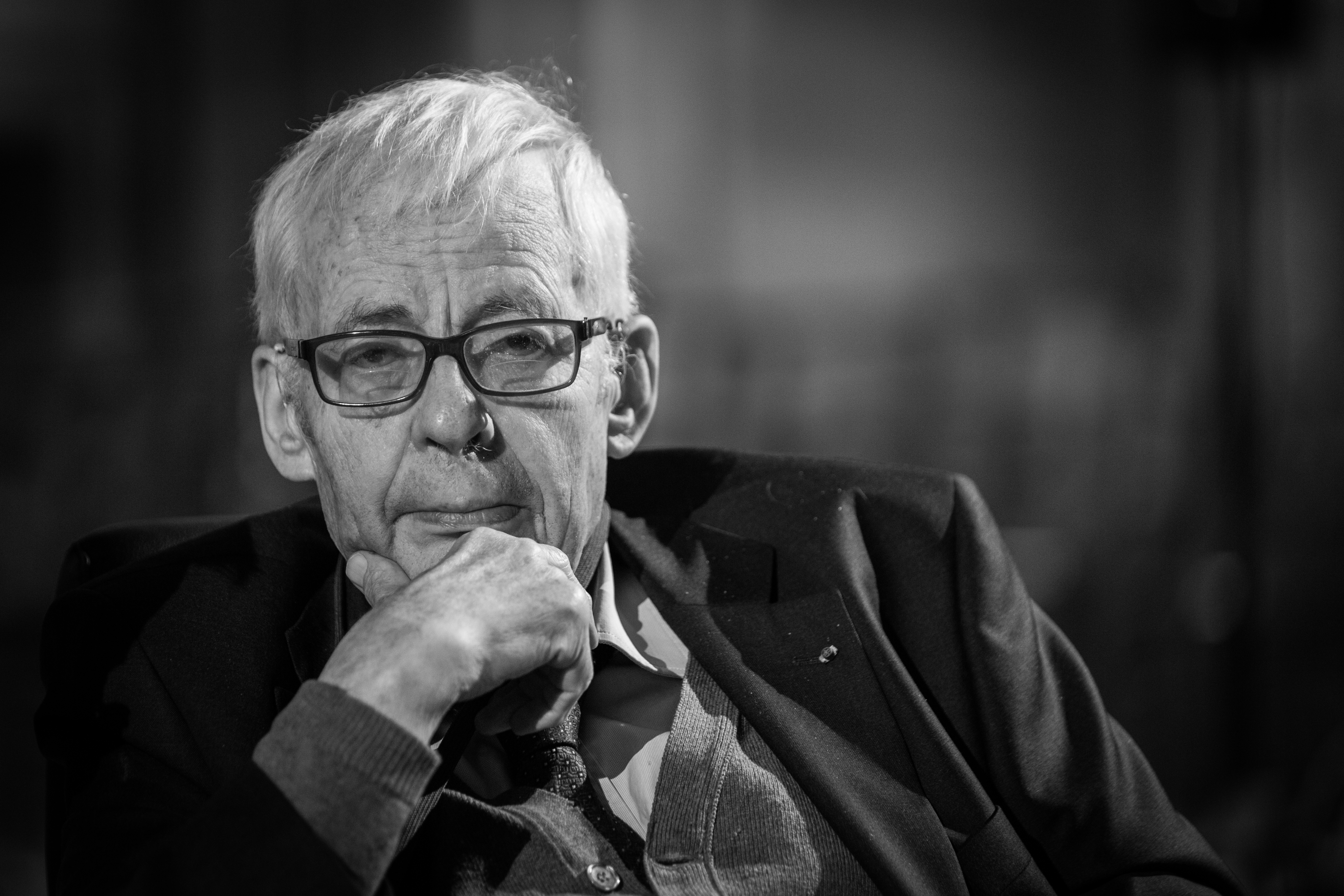
Claude Truong-Ngoc/Wikimedia Commons/CC BY-SA 3.0
Emmanuel Le Roy Ladurie, distinguished historian of ancien régime France, died at age 94 on November 22, 2023. He embarked on his career after completing his studies at the École normale supérieure in Paris. He held several coveted posts, including a research position at the Centre national de la recherche scientifique in the late 1950s, before being named the chair of modern history at the Collège de France in 1973. Many encomia have appeared since Le Roy Ladurie’s death. The present reflection is less a traditional memorial notice than an expression of gratitude for his contribution to the formation of my own historical consciousness in the 1970s, when his influence was at its pinnacle.
I glimpsed Le Roy Ladurie on a few occasions in Paris while doing postdoctoral research at the Bibliothèque nationale de France, but I did not have the temerity to introduce myself. His masterpiece, Les paysans de Languedoc, appeared in 1966, and by the time I arrived in graduate school at Princeton University, it was required reading. The book, along with the newfound utility of the computer in doing social scientific research, contributed to the growing attraction of quantitative history. Since Le Roy Ladurie’s study covered an enormous span of time, it also contributed to American historians’ fascination with the longue durée approach to history most closely associated with Fernand Braudel.
Le Roy Ladurie admired Braudel’s work, but he had serious reservations about the reliance on climate and geography as explanatory variables in it. Moreover, animosities arose between the men over the direction of the flagship French historical journal, Annales ESC (now Annales HSS). The present initials stand for Histoire, Sciences Sociales, a somewhat bland motto for the extraordinary scholarly enterprise associated with the names of Marc Bloch and Lucien Febvre. The original initials, which stood for Économies, Sociétés, Civilisations, evoked the materialist view of historical causation. Factors that informed the economic basis of life created the preconditions for social formation and its development, from which civilization took shape. Le Roy Ladurie remained attracted to this paradigm his whole career, but he never seemed limited by it. He also sought to reconstruct the mentalités of various historical societies in a number of his books, most controversially Montaillou: Village occitan de 1294 à 1324 (1975). I remain in awe of the accomplishment.
Many medieval historians were less enthusiastic. A number of serious reviewers, including Leonard Boyle and David Herlihy, had misgivings about Le Roy Ladurie’s technical skills and his interpretations of the great inquisition on which he based his study. Nonetheless, what was very attractive about the book to me as a relative neophyte and has continued to be to succeeding cohorts of medieval historians was its author’s passionate attachment to his subjects, the peasants who suffered the intrusive disciplinary practices of the 13th- and 14th-century church.
Emmanuel Le Roy Ladurie had unbounded historical curiosity about many subjects, including climate, ritual practices, popular culture, biography, and politics. His interest in politics was not solely academic. Rather, he was an engaged intellectual whose political trajectory included his relatively youthful affiliation with the Communist Party, disillusionment with it after 1956, and a longer-term membership in the Socialist Party, which in the end also did not satisfy his political yearnings. What is clear is that his passion for the real problems of real people in the present deeply informed and enriched even the most structuralist examples of his scholarship.
Arno Mayer, my colleague at Princeton, knew Emmanuel Le Roy Ladurie well. Both were cosmopolitan personalities. On Mayer’s return to Princeton from a European trip in the early 2000s, one that included a visit to Le Roy Ladurie’s family residence in Normandy, he asked me whether I had ever met the great French historian. I confessed that I had not. I should have, he responded. Le Roy Ladurie had read my book on the great famine of the early 14th century and enjoyed it. I was delighted, of course. I was more touched that he had inscribed to me a copy of his most recent book at the time, Histoire des paysans français (2002). This wholly unexpected gift is one I shall always treasure. In my admittedly not disinterested opinion, the discipline has lost not only an inspiring historian but also a generous human being.
William Chester Jordan
Princeton University
Tags: In Memoriam Europe

This work is licensed under a Creative Commons Attribution-NonCommercial-NoDerivatives 4.0 International License. Attribution must provide author name, article title, Perspectives on History, date of publication, and a link to this page. This license applies only to the article, not to text or images used here by permission.
The American Historical Association welcomes comments in the discussion area below, at AHA Communities, and in letters to the editor. Please read our commenting and letters policy before submitting.
Comment
Please read our commenting and letters policy before submitting.






